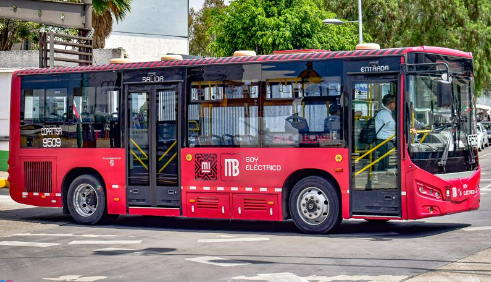
IUSA Electric Units Incorporated in Mexico City’s Metrobús

Mexico City authorities state that the inclusion of electric units in public transportation contributes to the reduction of more than 7,500 tons of carbon dioxide (CO2) per year, which is equivalent to planting more than 45,000 trees.
It is worth noting that according to the report Sustainable Transport: Critical Driver to Achieve the SDGs, Mexico’s emissions are 700 million tons of CO2 per year, which places the country in 13th place in global emissions caused by burning fuels.
To combat and promote sustainable transportation, the company IUSA intensifies its work with the incorporation of Metrobus units, after being authorized by the government of the capital to begin operational tests of a locally manufactured electric bus, which provides services on Line 4 of the transportation system.
Related content: IUSA Electromobility Revolutionizes Transportation in Mexico
Vehicle Range and Characteristics
Metrobus Line 4 covers the Buenavista San Lázaro route and in various extensions reaches Terminals 1 and 2 of the Mexico City International Airport (AICM) as well as the Alameda Oriente in the Iztacalco district and the Pantitlán Metro terminal.
The vehicle used by IUSA is called BALAM, a 100% electric public transportation unit that generates a positive impact on the environment in major urban areas.
Among its attributes are noise reduction and reduced emissions, through smooth and stable braking. It also offers high safety standards with a great electric driving system.
According to IUSA, BALAM generates low maintenance costs, since the brake pads and clutch disc have a long service life.
Public policies have been decisive in the promotion of electrified transportation in Mexico City.
In February of this year, the capital’s government gave the go-ahead for the launch of 60 electric units on Line 3 of the Metrobus, the first of this 100% electric transport system in the country and the only one of its kind in the world.





